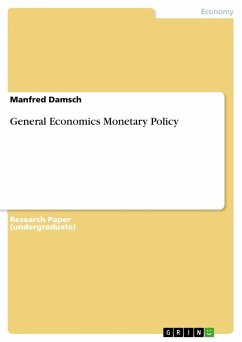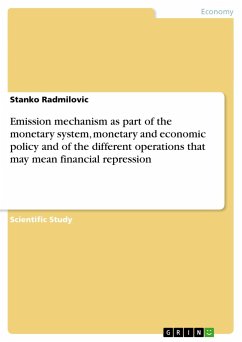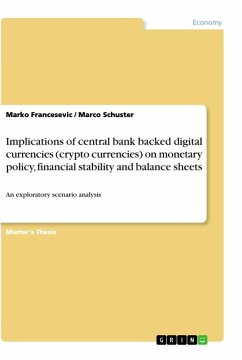Seminar paper from the year 2010 in the subject Economics - Monetary theory and policy, grade: 1,0, University of Mannheim, course: Wirtschaftspolitik, language: English, abstract: Financial regulation has played an unfavorable role in the financial crisis. Many reform proposals conclude from its failure that there is a need for more and tougher rules (Group G30 2009).Consolidating existing regulatory bodies and a centralization of authorities seem to be the ubiquitous answer of many politicians. In the European Union (EU), a reform proposal has gained support by the European parliament (EP) and the European Commission (EC), which would mean additional competences and staff for European bureaucracies. Because it would centralize large parts of regulation and supervision, political arguments focus on the allocation of competences and power. However, it is not sure if the proposed changes would have any effect in preventing future crises.The structure of this paper follows a systematic approach to demonstrate problems with this proposal. At first, I show in chapter 2 that the role of regulation and governments in the financial crisis is ambiguous. What is viewed as market failure was sometimes only a rational response toincentives set by regulation. It is often stated that markets did not work efficiently, and the obvious solution is to rely on governments and regulators to fix the problems. I check if international comparison provides support for consolidating regulatory bodies. In Chapter 3, I assess in detail theproposed EU reform that focuses on establishing new bureaucracies and implementing more rules. I will use a structured Public Choice approach to evaluate the reform proposal and assess special interests of involved political parties. Chapter 4 examines the role of the EU Council and voterpreferences. Considerable power in the EU decision-making process rests with parties that support centralization and more regulation. With various approaches, itis tried to shed light on the position of the Council as the representation of member states. While European institutions might embraceadditional power and competences, rational voters in the member states should oppose harmful, excessive regulation and centralization. However, a detailed analysis of government and voter preferences reveals that both are likely to have biased preferences in favor of too much regulation.
Hinweis: Dieser Artikel kann nur an eine deutsche Lieferadresse ausgeliefert werden.
Hinweis: Dieser Artikel kann nur an eine deutsche Lieferadresse ausgeliefert werden.








